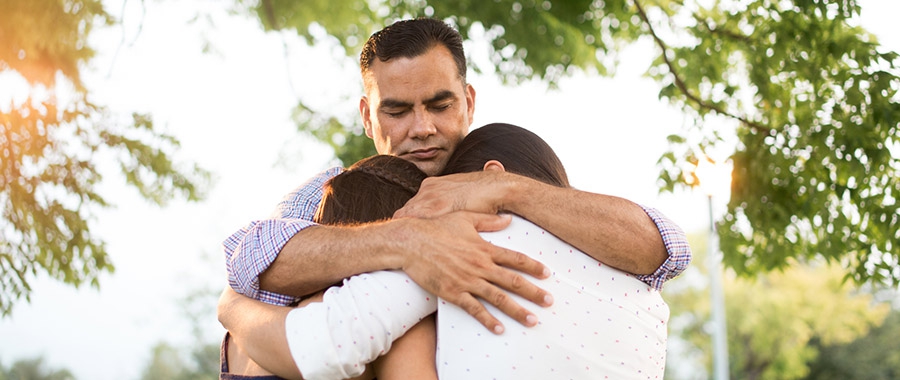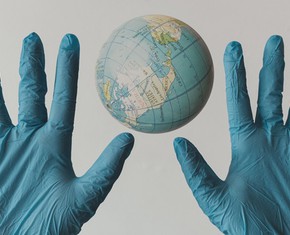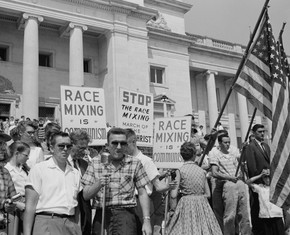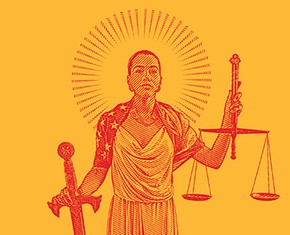The views expressed in our content reflect individual perspectives and do not represent the authoritative views of the Baha'i Faith.
“She was too young to be taken from us.” “He should have lived a lot longer.” “She didn’t deserve to die at her age.” “Why do the good die young?”
We’ve all spoken or heard these sentiments, even witnessed firsthand their telling, especially on news reports or in testimonials. Sadly, it may have been someone we loved, and we might have said these things ourselves about a loved one or acquaintance who has passed.
There are a million ways we die and only one way to be born. While the birthing is usually joyous, the dying is painful for the ones left behind. So why do good people keep dying in droves?
From a Baha’i perspective, the human race is still immature—so we haven’t yet figured out how to stop those unavoidable tragedies. We have not instituted universal love and caring for one another, and the Golden Rule sits idle while we try to learn and relearn what not to do to others. We don’t seem to be absorbing the spiritual lessons of the world’s great Faiths quickly enough to stave off war, genocide, oppression and ruthlessness—even though we have the means and the capacity to stop all these things:
The earth is one native land, one home; and all mankind are the children of one Father. God has created them, and they are the recipients of His compassion. Therefore, if anyone offends another, he offends God. It is the wish of our heavenly Father that every heart should rejoice and be filled with happiness, that we should live together in felicity and joy. The obstacle to human happiness is racial or religious prejudice, the competitive struggle for existence and inhumanity toward each other. – Abdu’l-Baha, The Promulgation of Universal Peace, p. 140.
While there is no substitute for the pain and loss when someone close to us dies, as a race we have not yet extended this feeling and the need to do something to ameliorate it to all humanity. Although we see, hear and read reports of atrocities, the further they occur away from home, the less we feel we can do something to avoid a reccurrence.
That is far from the actual truth. If we acted together, we could make great strides and dramatically reduce unnecessary and innocent deaths. It’s called unity of will and purpose, and history is replete with examples of the efficacy of that unified approach.
Take smallpox or polio as just two examples. Smallpox was responsible for an estimated 300–500 million deaths during the 20th century. But, after massive vaccination campaigns throughout the 19th and 20th centuries, the World Health Organization (WHO) certified the global eradication of smallpox in 1980
Poliomyelitis, which causes an inability to move, had major outbreaks in the late 19th century in Europe and the United States. In the 20th century it became one of the most widespread and debilitating childhood diseases in the world, and researchers everywhere worked tirelessly to find a cure—until the first effective polio vaccine was developed in the 1950s by Jonas Salk. Today, vaccination efforts, better sanitation and early detection of cases will likely result in total global eradication of the disease by 2018.
Surely, given modern communications, technology and education, if we put our minds and efforts and resources into eradicating war and oppression, a sea change of hearts could occur in just one or two generations.
After all, we have ample proof that when we unite in thought, action and purpose, anything can be accomplished! Baha’is believe that eradicating the diseases of war, poverty, inequality and racism can occur, if we only unite:
Among the favorable signs are the steadily growing strength of the steps towards world order taken initially near the beginning of this century in the creation of the League of Nations, succeeded by the more broadly based United Nations Organization; the achievement since the Second World War of independence by the majority of all the nations on earth, indicating the completion of the process of nation building, and the involvement of these fledgling nations with older ones in matters of mutual concern; the consequent vast increase in cooperation among hitherto isolated and antagonistic peoples and groups in international undertakings in the scientific, educational, legal, economic and cultural fields; the rise in recent decades of an unprecedented number of international humanitarian organizations; the spread of women’s and youth movements calling for an end to war; and the spontaneous spawning of widening networks of ordinary people seeking understanding through personal communication. – The Universal House of Justice, The Promise of World Peace, October 1985.
Halting unnecessary suffering and death is achievable—when we decide collectively to do so. We must continue the calls on our great assemblies and national leaders to act for the good of all humankind, or put in place those who will:
Now, in this glorious age, which is the century of Baha’u’llah, consider how far knowledge and learning have progressed, how fully the mysteries of creation have been unveiled, and how many great undertakings have been embarked upon and are multiplying day by day! Soon will material knowledge and learning, as well as spiritual knowledge, make such progress and display such wonders as to dazzle every eye and to disclose the full meaning of the verse of Isaiah: “for the earth shall be full of the knowledge of the Lord.” – Abdu’l-Baha, Some Answered Questions, newly revised edition, p. 74.
If we follow this deeply spiritual advice, we’ll one day be able to stop saying “Why do the good die young?”
You May Also Like
Comments

















And thank you for your goal of being an angel, an angel of peace is an angel of love, and we can all aspire to that. I even wrote some BahaiTeachings articles a ways back on how we can do that, and how we are that.